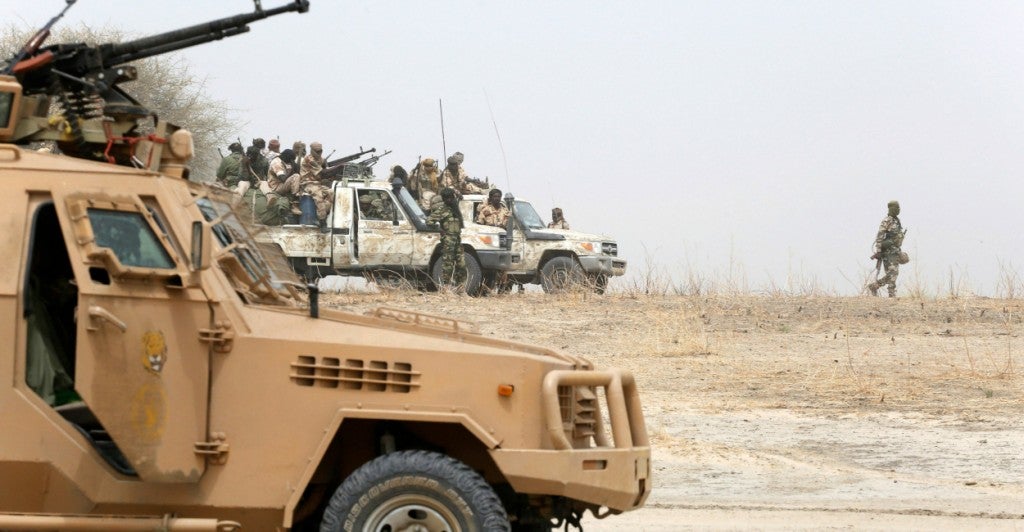Abubakar Shekau, the leader of Boko Haram, formally pledged allegiance to the Islamic State in an audio recording posted to Boko Haram’s Twitter account on March 7.
“We announce our allegiance to the caliph… and will hear and obey in times of difficulty and prosperity,” declared the Boko Haram leader.
Boko Haram previously talked of an independent Nigerian Islamic caliphate late last summer but now recognizes the Islamic State as the only caliphate. The alliance now extends the influence of the Islamic State as far from Iraq and Syria as Nigeria. According to an unconfirmed audio recording, ISIS has accepted the Nigerian-based terrorist group’s pledge of allegiance.
On March 4, Boko Haram militants killed two soldiers using a remotely detonated bomb they planted outside the town of Diffa in the southeast of Niger. This is the first time a bomb of this type has been used by the group. The insurgent group also has bolstered its use of young female suicide bombers. On Feb. 22, a young girl, appearing to be only about eight years old according to witnesses, walked up to the entrance of a market in Potiskum and detonated herself after the security guards demanded she let them search her.
Before officially pledging allegiance to the Islamic State, Boko Haram released an Islamic State-style beheading video as the first part of a video series it calls “Harvest of Spies.” The video, released March 2, features two masked executioners standing behind one of two alleged spies kneeling on the ground with their hands tied.
The group not only is committing violent atrocities across northern Nigeria, it also is securing its funding through exceptionally harsh methods. ISIS robs banks, extorts payments from the communities it occupies, maintains illicit money lending networks and sells illicit oil, but Boko Haram relies heavily on extorting impoverished people in the Lake Chad basin to fund its operation.
Boko Haram demands money from traders who frequent routes through its territory, ransoms the children of farmers and loots the villages it attacks. Until recently the group’s operation costs have been relatively low. But as the regional task force increases pressure, the group likely will need additional funding, which surely was part of its decision to align with ISIS.
There has been some success in pushing back Boko Haram in recent weeks with help from South African mercenary forces and the regional military forces including Niger, Cameroon, Chad and Benin. But the insurgent group has continued to operate effectively. Boko Haram is like a snake striking back after being poked and prodded. It needs to be eliminated quickly and forcefully in a significant blow.
Despite recent gains made against the group, serious questions remain about Nigeria’s overall commitment to a long-term counterinsurgency strategy and willingness to coordinate with regional partners to eliminate Boko Haram after the March 28 presidential election. What happens after the polls will be the real indicator of the political strength behind the fight against Boko Haram.
